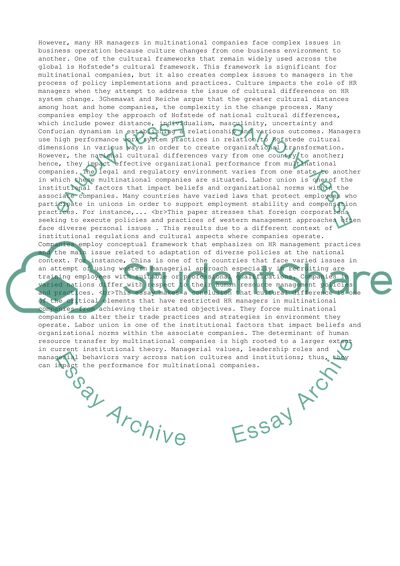Cite this document
(“Multinational Human Resource Management Essay Example | Topics and Well Written Essays - 1750 words”, n.d.)
Multinational Human Resource Management Essay Example | Topics and Well Written Essays - 1750 words. Retrieved from https://studentshare.org/management/1465871-multinational-human-resource-management
Multinational Human Resource Management Essay Example | Topics and Well Written Essays - 1750 words. Retrieved from https://studentshare.org/management/1465871-multinational-human-resource-management
(Multinational Human Resource Management Essay Example | Topics and Well Written Essays - 1750 Words)
Multinational Human Resource Management Essay Example | Topics and Well Written Essays - 1750 Words. https://studentshare.org/management/1465871-multinational-human-resource-management.
Multinational Human Resource Management Essay Example | Topics and Well Written Essays - 1750 Words. https://studentshare.org/management/1465871-multinational-human-resource-management.
“Multinational Human Resource Management Essay Example | Topics and Well Written Essays - 1750 Words”, n.d. https://studentshare.org/management/1465871-multinational-human-resource-management.


